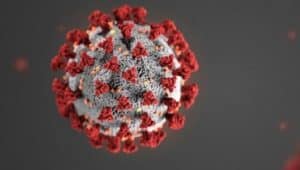
MIT-developed algorithm seeks to accelerate drug approvals during COVID-19 pandemic
pharmafile | May 20, 2020 | News story | Research and Development, Sales and Marketing | COVID-19, MIT, coronavirus, regulatory
A study emerging from the Massachusetts Institute of Technology (MIT) and published in the Harvard Data Science Review has detailed strategies for accelerating the regular pace of regulatory approvals in order to create a faster access route to essential treatments and prophylactics during the ongoing COVID-19 pandemic.
Randomised clinical trials are a cornerstone of research for new and effective therapies, but the issue of false positive and false negative results in study findings can skew our understanding of the safety and efficacy or a treatment, potentially meaning respectively that either ineffective drugs make it to market or effective ones do not.
“Only when the treatment group shows significant improvement over the control group, will regulators approve the therapy. The current process is designed to protect the public by minimising the chances of “false positives” and approving ineffective and unsafe therapies, and by and large, it’s been very successful,” explained Dr Andrew Lo, Study Senior Author and Charles E and Susan T Harris Professor at the MIT Sloan School of Management.
The research team at MIT set out to build a system to calculate the optimal statistical threshold for securing regulatory approval under the current conditions by utilising an epidemiological model of the novel coronavirus. The system features an explicit optimisation algorithm which uses this model to predict the expected death rate from the disease and provide indications on how to reduce it.
It is hoped that the algorithm will function in a similar way to emergency-use regulatory programmes in making more drugs available, quicker – a crucial advantage in providing adequate care during an outbreak for which there are currently no effective drugs.
“In the midst of an outbreak, many lives are at stake, so we need to be less concerned about false positives and more concerned about false negatives than during normal times,” said Dr Lo, “In response, we’ve developed an analytic framework that allows regulators to make this trade-off systematically, transparently, and rationally.”
Matt Fellows
Related Content

NNIT partners with global biopharma company for regulatory registration management
NNIT, a Danish provider of digital software and IT services, has entered a long-term strategic …

COVID-19 vaccine eligibility creates challenges for UK pharmacies
Pharmacists across England have reported widespread confusion among patients attempting to book COVID-19 vaccination appointments …

Mental health medicine use in England reaches record high, NHSBSA report reveals
According to new data published by the NHS Business Services Authority (NHSBSA), mental health prescriptions …






